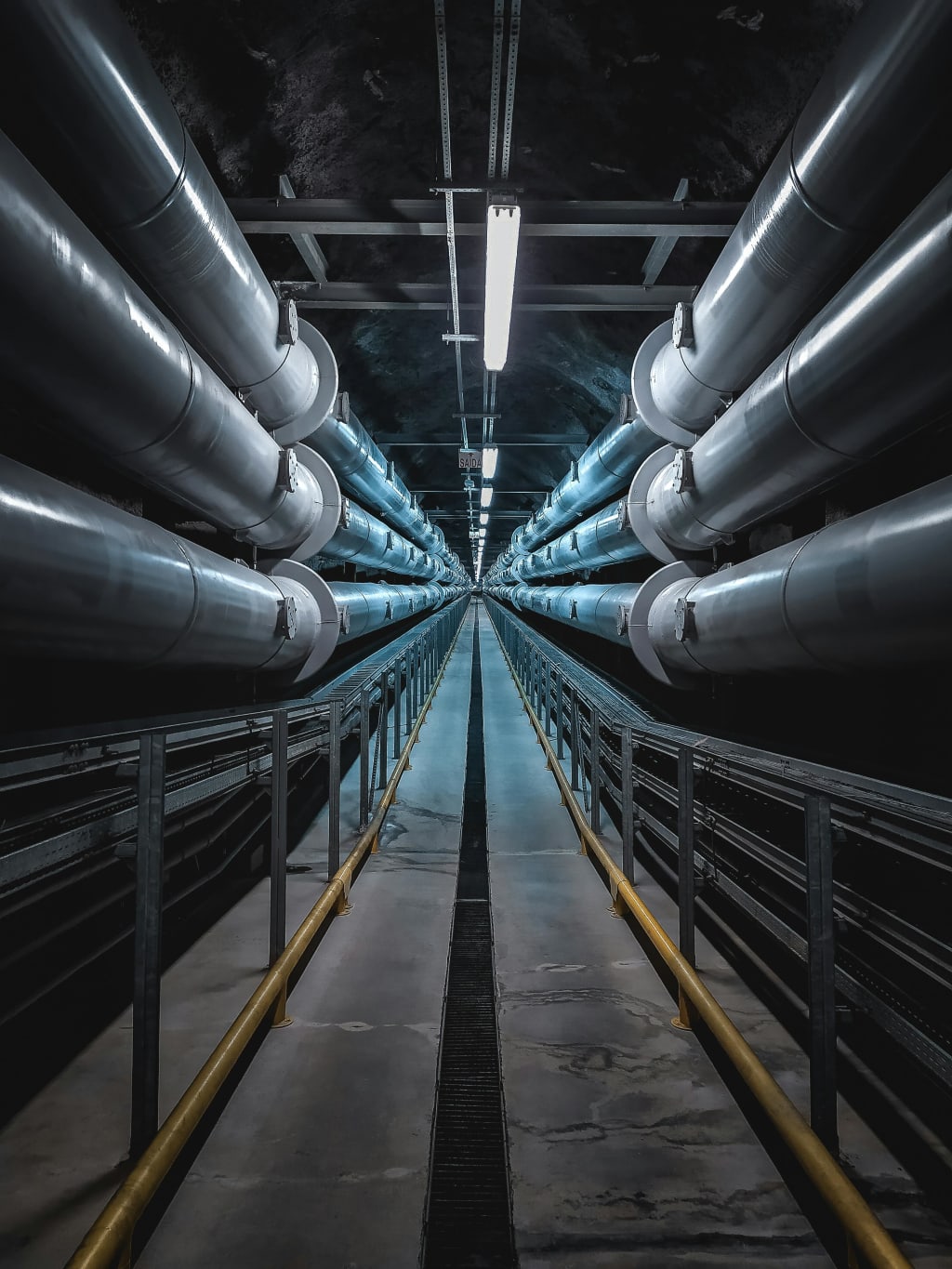Digital Pipelines
Streamlining Transportation and Maintenance with Digital Transformation

The traditional pipeline industry, responsible for transporting vast quantities of materials, is undergoing a significant digital transformation. This paper explores the integration of digital technologies within pipelines, focusing on its impact on transportation efficiency and maintenance practices. It examines key areas such as real-time monitoring, advanced analytics, automated control systems, predictive maintenance, remote monitoring, and improved safety. Additionally, the paper discusses the strategic approach required for successful digital transformation in pipelines, emphasizing technology investment, workforce upskilling, and data-driven decision-making.
Pipelines are a critical infrastructure component, responsible for transporting essential materials like oil, gas, and other resources across significant distances. Traditionally, pipeline operations relied on manual monitoring and reactive maintenance methodologies. However, the advent of digital technologies is driving a paradigm shift within the industry. This digital transformation in pipelines leverages advancements in sensor technology, data analytics, and automation to enhance both transportation efficiency and maintenance practices.
Transportation Efficiency Enhancements
Real-time Monitoring: Embedded sensor networks within pipelines collect critical data on parameters like pressure, flow rate, and temperature. This real-time data stream enables:
Optimized Transportation Schedules: Operators can utilize real-time data to make informed decisions regarding transportation schedules, minimizing delays and disruptions.
Proactive Blockage Identification: Continuous monitoring allows for early detection of potential blockages, preventing significant disruptions to flow.
Product Quality Assurance: Real-time data facilitates the monitoring of product quality throughout transportation.
Advanced Analytics: Leveraging machine learning and data analytics unlocks valuable insights from the vast amount of data collected by sensor networks. These insights enable:
Predictive Flow Optimization: By analyzing historical data and real-time conditions, predictive models can optimize flow patterns, minimizing energy consumption and maximizing overall efficiency.
Proactive Issue Identification: Advanced analytics can identify subtle deviations in data patterns, potentially indicating future issues before they escalate. This allows for proactive adjustments to prevent disruptions.
Automated Control Systems: Digitalization facilitates the implementation of automated control systems. These systems utilize real-time data to:
Self-regulate Pressure and Flow Rates: Automated systems can adjust pressure and flow rates dynamically based on real-time conditions, optimizing performance without human intervention.
Minimize Human Error: Automating control processes reduces reliance on manual adjustments, minimizing the risk of human error-induced disruptions.
Revolutionizing Maintenance Practices
Predictive Maintenance: Digital technologies enable a shift from reactive to predictive maintenance strategies. By analyzing sensor data and historical trends:
Early Detection of Equipment Failure: Potential equipment failures can be identified before they occur, allowing for proactive maintenance and preventing costly downtime.
Extended Pipeline Lifespan: Predictive maintenance strategies contribute to the longevity of pipeline infrastructure by addressing potential issues before they escalate into major problems.
Remote Monitoring and Diagnostics: Digital tools like remote monitoring systems enable:
Enhanced Monitoring Capabilities: Pipeline companies can monitor their infrastructure remotely, even in remote locations, facilitating faster response times to issues.
Reduced On-site Inspections: Remote monitoring reduces the need for frequent on-site inspections, improving cost-efficiency and safety for personnel.
Improved Diagnostic Accuracy: Remote diagnostic tools enable technicians to analyze data and diagnose issues remotely, facilitating targeted maintenance efforts.
Improved Safety: Digital transformation significantly enhances pipeline safety by:
Real-time Leak Detection: Advanced leak detection systems can identify even minor breaches, enabling rapid intervention and minimizing environmental damage.
Enhanced Worker Safety: Reduced reliance on on-site inspections improves worker safety by minimizing exposure to potential hazards.
Strategic Implementation of Digital Transformation
The successful implementation of digital transformation in pipelines requires a strategic approach encompassing several key factors:
Technology Investment: Investing in appropriate technologies like sensor networks, data analytics platforms, and automation systems is crucial.
Workforce Upskilling: The workforce needs training to understand and effectively utilize the newly implemented digital tools and processes.
Data-driven Decision-Making: A culture that fosters data-driven decision-making is essential to maximize the benefits of digital transformation.
Conclusion
Digital transformation process in pipelines offers a compelling path toward a more efficient, reliable, and sustainable transportation network. By integrating digital technologies, pipeline companies can enhance transportation efficiency, revolutionize maintenance practices, and improve overall safety. By embracing this transformation and implementing a strategic approach, the pipeline industry can pave the way for a brighter future, ensuring the smooth flow of essential resources for generations to come.





Comments
There are no comments for this story
Be the first to respond and start the conversation.